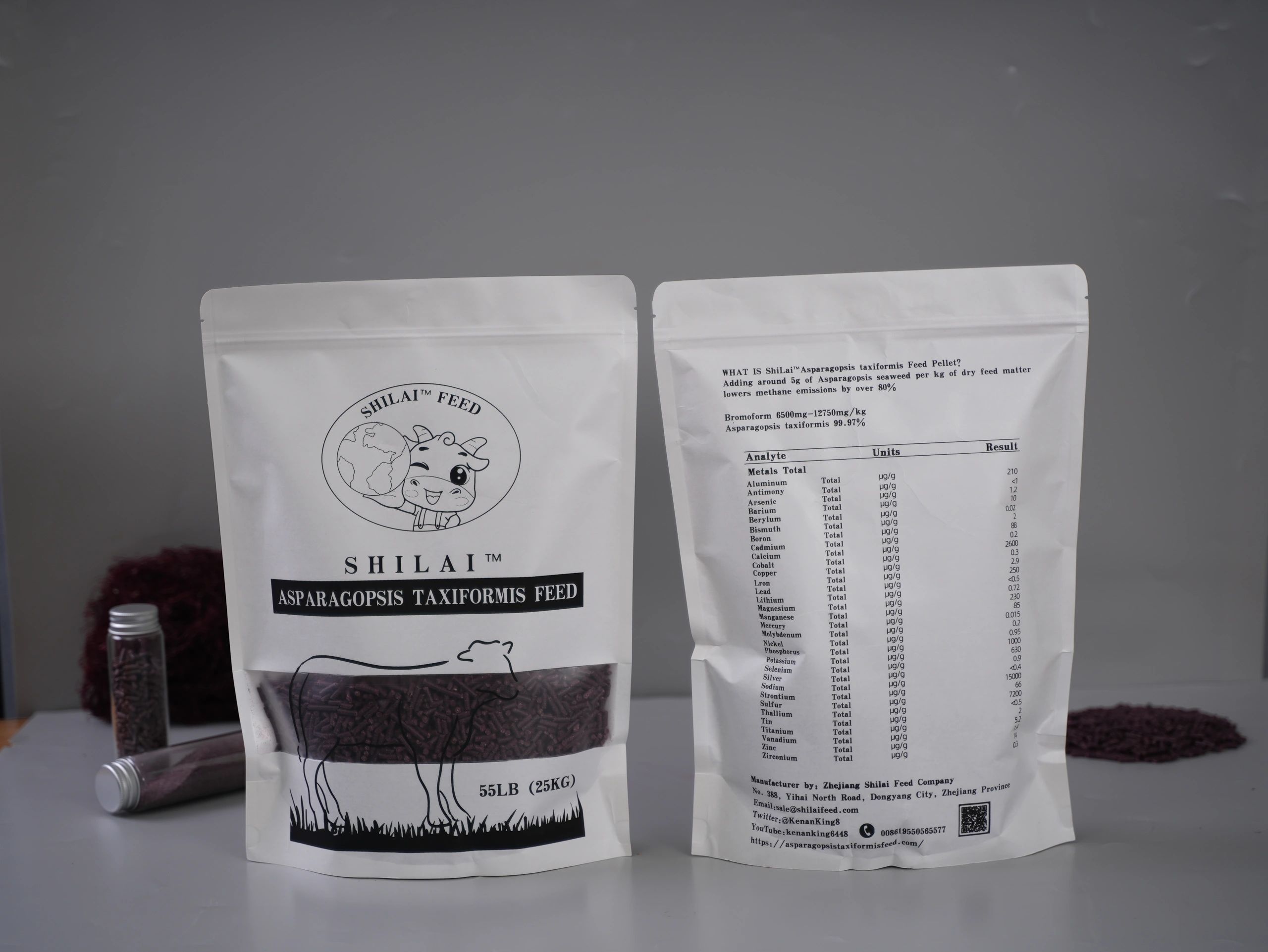
Global farming activities are responsible for a large share of greenhouse gas outputs, driven mainly by animal production.
Methane’s warming potency exceeds that of carbon dioxide, so cutting methane emissions delivers outsized climate benefits.
Asparagopsis taxiformis, an oceanic red alga, shows potential as an effective strategy to reduce methane emissions from animals.
This seaweed contains a compound that inhibits methane formation in the rumen, thereby lowering animals’ overall methane output.
Adding Asparagopsis taxiformis to feed rations has returned positive early-stage evidence for cutting methane from ruminant animals.
- Furthermore, Asparagopsis taxiformis delivers a range of complementary benefits beyond methane mitigation.
- Elevated animal welfare and condition
- Opportunities for economic growth in rural communities
Additional scientific and practical work is necessary, but Asparagopsis taxiformis stands out as a promising pathway to greener livestock production.
Harnessing Asparagopsis taxiformis Powder as an Innovative Feed Additive
A powdered or concentrated form of Asparagopsis taxiformis has the potential to reshape animal feed approaches and outcomes.
The alga packs biological and nutritional characteristics that support better animal outcomes and farm results.
Employing A. taxiformis powder in feed mixes has achieved methane declines in trials and may improve micronutrient profiles.
Continued scientific trials are needed to calibrate doses, processing techniques, and longitudinal effects on livestock.
The Role of Asparagopsis taxiformis in Shaping Sustainable Animal Farming
Asparagopsis taxiformis has come to prominence as a candidate solution for environmental concerns in animal agriculture.
Integrating the algae into feeds may allow producers to substantially reduce on-farm methane emissions and environmental impacts.
The literature points to additional gains in animal health and output that may accompany methane mitigation using Asparagopsis.
While comprehensive long-term data and commercialization pathways are still being developed, early results are promising.
Asparagopsis Feed Supplements for Methane Mitigation
Scientists identify Asparagopsis as a credible method to reduce methane generation within the rumen of ruminants.
Its methane-cutting impact is linked to compounds that interfere with the microbial pathways responsible for methane formation.
- Several studies have documented considerable methane reductions in ruminants receiving Asparagopsis in feed.
- The use of Asparagopsis as a feed additive is considered an environmentally sustainable approach to methane mitigation.
- Many producers are investigating the feasibility of integrating Asparagopsis into routine feeding practices.
Asparagopsis: Revolutionizing Methane Management in Livestock Farming
From ocean science to farm practice, Asparagopsis taxiformis is an emerging contender for sustainable methane mitigation.
- Trials that fed Asparagopsis to livestock documented marked methane reductions, pointing to strong environmental upside.
- The technology points to reconciling productive agriculture with lower emissions and improved sustainability.

As the world pursues practical climate actions, Asparagopsis appears as a unique and deployable option to mitigate enteric methane.
Maximizing the Methane-Reduction Potential of Asparagopsis taxiformis Feed Products
Investigations focus on ideal extraction, stabilization, and dosing to maximize the methane mitigation benefits of A. taxiformis.
The Science Behind Asparagopsis taxiformis's Methane-Lowering Effects
The scientific explanation centers on the seaweed’s bioactives inhibiting methanogenic archaea and thereby lowering methane output.
Bromoform and related halogenated compounds are thought to play a major role in disrupting methane production, with ongoing safety studies.
Adding Asparagopsis into Rations to Support Sustainable Livestock Systems
The alga’s nutrient composition plus its methane-mitigating constituents support its potential as a feed ingredient.
Including the seaweed in formulations can supply proteins and trace elements, support digestive health, and contribute antimicrobial effects.
Leveraging Asparagopsis taxiformis for Environmental Gains in Food Production
Asparagopsis taxiformis is emerging as a notable marine-derived option to help address climate and environmental challenges in food systems.
- Additionally, the species offers a useful blend of nutrients that complement feed formulations.
- Researchers and practitioners are investigating diverse applications of the species across farming and food industries.
Bringing Asparagopsis into routine practices has the potential to reduce emissions associated with animal production.
Asparagopsis Feed Strategies to Improve Animal Well-Being and Productivity
Asparagopsis is attracting interest as a supplement that can lower methane and concurrently bolster animal health and efficiency.
Evidence points to improved digestive nutrient capture and feed efficiency with Asparagopsis, which may raise productivity.
Functional benefits like antioxidant and immune-support properties may accompany Asparagopsis use, reinforcing animal health.
Increasing focus on sustainable production makes Asparagopsis a compelling candidate as evidence and supply chains mature.
Towards Carbon Neutrality with Asparagopsis-Enhanced Feed Solutions
As agriculture confronts demands for lower emissions, Asparagopsis emerges as a tangible tool to help reduce methane burdens.
- Scientists believe the seaweed contains compounds that disrupt methanogenesis in the rumen, thereby lowering methane production.
- Controlled experiments have shown that feeding Asparagopsis can yield notable declines in methane production.
As a feed innovation, Asparagopsis could contribute to more climate-resilient and environmentally conscious food systems.